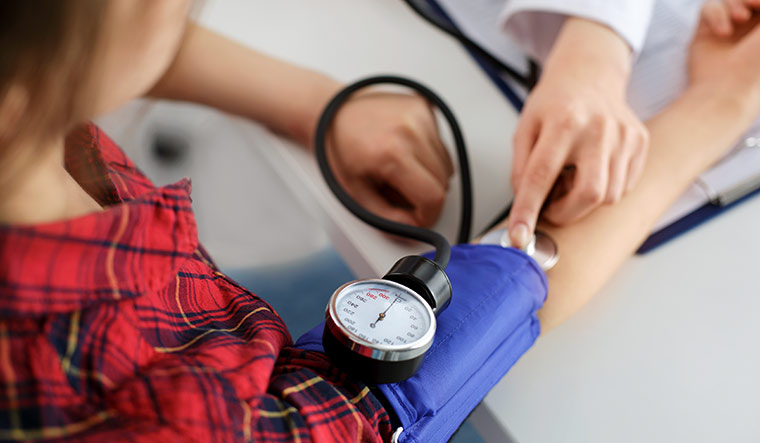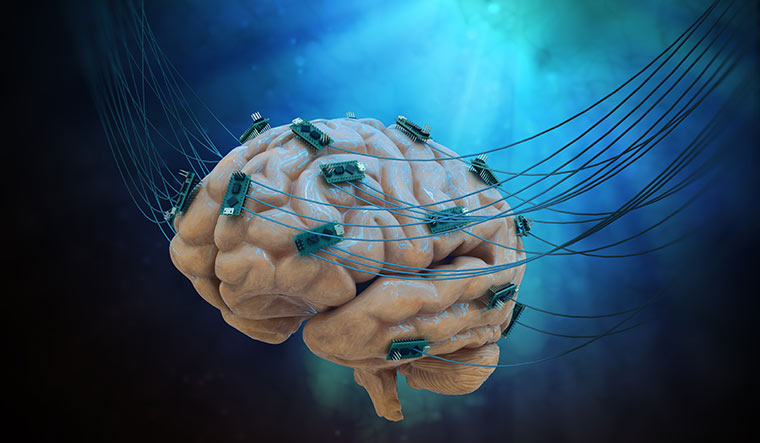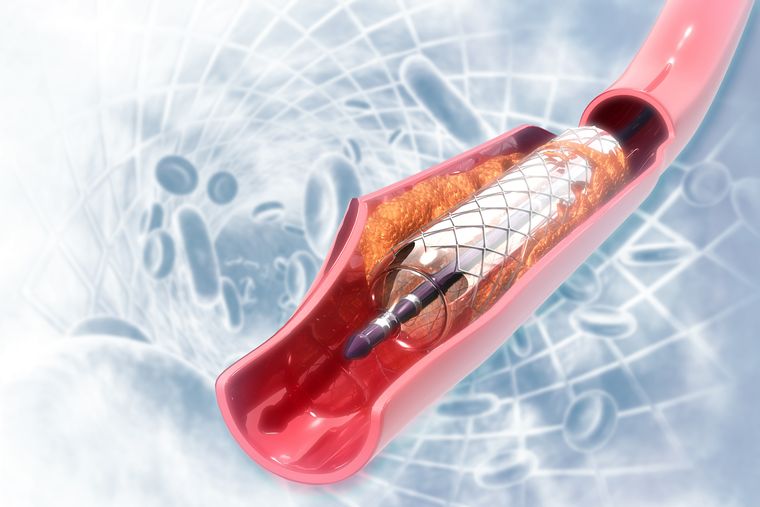Women who experience domestic abuse are more likely to develop cardiometabolic diseases such as heart disease, stroke and type 2 diabetes. They also have a higher risk of all-cause mortality.
For the study published in the Journal of the American Heart Association, the researchers compared the medical records of 18,547 women who had experienced domestic abuse with 72,231 women matched by age and lifestyle factors who did not have such an experience recorded.
Women who had been exposed to domestic abuse were 31 per cent more likely to develop cardiovascular disease, especially coronary artery disease and stroke, and 51 per cent more likely to develop type 2 diabetes. In addition, they also had a 44 per cent increased risk of all-cause mortality.
Women exposed to domestic abuse are more likely to have adverse lifestyle factors such as poor diet, smoking and excessive alcohol use as well as chronic stress, all of which could partly explain the increased health risks. “Clinicians should be made aware of the disproportionally increased risk and encouraged to manage modifiable risk factors actively in this group,” the study concluded.
Time your knee replacement
According to a US study published in the Journal of Bone and Joint Surgery, timing is crucial for knee replacement surgery. A study of 8,002 participants who had or were at risk of knee osteoarthritis found that 91 per cent of them waited too long before surgery, while 25 per cent underwent surgery without needing it.
People who wait too long may not regain function and mobility as much as someone who gets the procedure done at the appropriate time. “When people wait too long, two things happen,” the study author said. “The osteoarthritis causes deterioration of their function. Some of them wouldn’t be able to straighten their legs, affecting their walking and mobility.”
On the other hand, getting the surgery too early may yield limited benefits while exposing the patient to increased risk of major surgery-associated complications. These patients may also need a second surgery later, which is much more complicated and has poorer outcomes.
Degree of pain, joint function, age and radiographic assessment should be used to figure out the ideal time to have knee replacement surgery.
Did You Know?
Active, adult men who could perform more than 40 push-ups in one attempt had a 96 per cent reduced risk of major cardiovascular events over the next 10 years compared with those who were able to do fewer than 10 push-ups.
—JAMA Network Open
Fish oil for fertility
Taking fish oil supplements, which are high in omega-3 fatty acids, may improve sperm count and quality in young men, according to a Danish study published in JAMA Network Open.
The study included 1,679 healthy Danish men, aged 18 and 19, taking a compulsory medical examination for military service. Ninety-eight of them reported taking fish oil supplements in the previous three months. Those who took fish oil supplements for at least 60 days during the previous three months had a higher sperm count than others. They also had higher semen volume, greater proportion of normal sperm cells, larger testicular size and improved levels of male hormones.
The study did not find any association between taking other daily supplements, such as multivitamins, and measures of testicular function. Previous studies have shown that fish oil supplements can improve semen quality among men with infertility. The current study shows that it improved semen quality and reproductive hormone levels among healthy men as well.
The fish oil supplements also had a dose-response effect. Those who took the supplements for more than 60 days had better testicular function that those who took them less often.
BP rises earlier, faster in women
Women's blood vessels age at a faster rate than men's. Blood pressure starts to increase at a younger age in women and continues to rise at a faster rate, than men.
For the study published in JAMA Cardiology, the researchers analysed nearly 1,45,000 blood pressure measurements collected from 32,833 people (54 per cent women) aged 5 to 98, over a period of 43 years.
Women showed signs of high blood pressure in their 20s compared with men and it continued to rise at a steeper rate throughout life. High blood pressure is a strong risk factor of cardiovascular diseases such as heart attack, stroke and heart failure. The study suggests that the biological and physiological processes that lead to cardiac events start earlier in women.
“Our data showed that rates of accelerating blood pressure elevation were significantly higher in women than men, starting earlier in life,” the author of the study said. “This means that if we define the hypertension threshold the exact same way, a 30-year-old woman with high blood pressure is probably at higher risk for cardiovascular disease than a man with high blood pressure at the same age.”
Praise for performance
Students focus more and behave better in class when teachers praise good behaviour rather than reprimand bad behaviour, according to a study published in Educational Psychology.
For the study, the researchers observed 2,536 students (aged 5 to 12 years) in 151 classes in 19 elementary schools for three years. Half of the classes observed followed a behavioural intervention programme, where students were told about the behaviour expected in class and commended for doing so. The other half of the classes followed typical classroom management practices.
The more teachers praised, the more attentive students were in class. The students listened to the teacher and focused on tasks up to 30 per cent more when teachers praised them more than they reprimanded them. “Even if teachers praised as much as they reprimanded, students' on-task behaviour reached 60 per cent,” the study author said. “Everyone values being praised and recognised for their endeavours. It is a huge part of nurturing children's self-esteem and confidence. If teachers are praising students for good behaviour, it stands to reason that this behaviour will increase, and learning will improve.”
Suicidal thoughts start young
Children as young as nine and 10 can have suicidal thoughts, according to a study published in JAMA Network Open.
The study included 11,814 children aged nine and 10 and their caregivers. Around 2.4 to 6.2 per cent of the children reported having suicidal thoughts, from wishing they were dead to planning but not executing a suicide attempt.
Around 1.3 per cent said they had tried to commit suicide, while 9.1 per cent reported non-suicidal self-injury. Boys were more likely than girls to have suicidal thoughts and commit non-suicidal self-injury. But this trend reverses as they grow older.
The study also found that family conflict and lack of parental monitoring are significant predictors of suicidal thoughts. Caregivers were mostly oblivious to their children having such thoughts. In more than 75 per cent of cases where children reported suicidal thoughts or behaviour, the caregivers were unaware of the child’s experience.
Usually people do not ask young kids if they have suicidal thoughts. But the author of the study said, “If you have kids who are distressed in some way, you should be asking about this. You can help identify kids who might be in trouble.”
Burnout linked to A-Fib
People who constantly feel stressed, irritated and exhausted may have burnout syndrome, or vital exhaustion. According to a US study published in the European Journal of Preventive Cardiology, burnout can increase the risk of irregular heartbeat known as atrial fibrillation, or A-Fib, which can lead to heart attack and stroke.
The researchers surveyed 11,445 people, with an average age of 57, who were free of A-Fib. They were monitored for signs of burnout and followed for 25 years. Burnout “is typically caused by prolonged and profound stress at work or home” and “differs from depression, which is characterised by low mood, guilt and poor self-esteem”.
There were 2,220 new cases of A-Fib during the study period. Those with the highest levels of burnout were 20 per cent more likely to develop A-Fib compared to those with little or no evidence of burnout.
“Vital exhaustion is associated with increased inflammation and heightened activation of the body’s physiologic stress response,” the author of the study explained. “When these two things are chronically triggered that can have serious and damaging effects on the heart tissue, which could then eventually lead to the development of this arrhythmia.”
Did You Know?
Getting two-and-a-half to five hours of moderate exercise or one-and-a-quarter to two-and-a-half hours of vigorous exercise per week can significantly lower the risk for seven cancer types, including colon, breast, endometrial, kidney, multiple myeloma, liver, and non-Hodgkin lymphoma.
—Journal of Clinical Oncology
New tool for post-stroke recovery
A new, non-invasive wearable magnetic brain stimulator could boost recovery and improve motor function in stroke survivors. The study presented at the American Stroke Association’s International Stroke Conference showed that the device improved brain activity in areas damaged by the stroke.
Thirty ischemic stroke survivors at least three months post-stroke, who had weakness on one side of their body, were included in the clinical trial. Half of the patients used a new wearable, multifocal, transcranial, rotating, permanent magnet stimulator for 40 minutes per session, for a total of 20 sessions over four weeks. The device, which is worn like a swim cap, has multiple magnetic microstimulators attached to it.
The remaining patients had a placebo treatment. The researchers analysed brain activity before, immediately after and one month after treatment. The device significantly increased brain activity—nearly nine times more than the placebo. There was also some improvement in motor function. The treatment was well tolerated, without any device-related complications.
If confirmed in larger clinical trials, “this technology would be the first proven treatment for recovery of motor function after chronic ischemic stroke”, the lead researcher said.
Did You Know?
Older adults who regularly consume food (like green leafy vegetables, apples, pears and tea) that are good sources of a type of antioxidants called flavonols have a 48 per cent decreased risk of developing Alzheimer's disease.
—Neurology
A brainy solution
Brain stents are safe and effective in cutting the odds of a recurrent stroke and death in patients who suffer a stroke due to intracranial atherosclerotic disease, or cholesterol-clogged brain arteries.
The study presented at the American Stroke Association's International Stroke Conference analysed data on recurrent stroke or death in 152 stroke survivors and found that the risk of a repeat stroke was about 50 per cent lower in patients who had received a brain stent.
“After a year, there was a low risk of recurrent stroke or death in these patients compared to what we would expect historically. About 9 per cent or so of the patients had a recurrent event, compared with what we would expect to be closer to 20 per cent,” the study author said, adding that stenting could provide an alternative to stroke survivors when medical therapy and other treatments have been unsuccessful.
CONTRIBUTOR: SHYLA JOVITHA ABRAHAM









